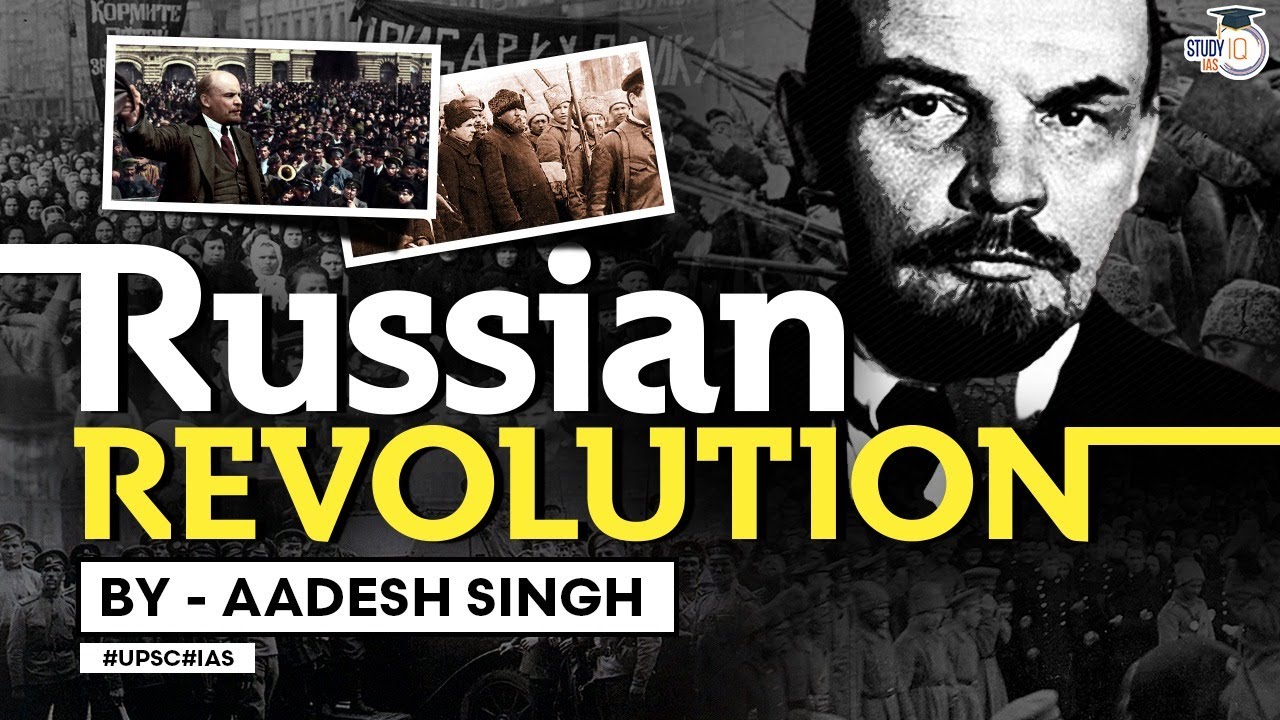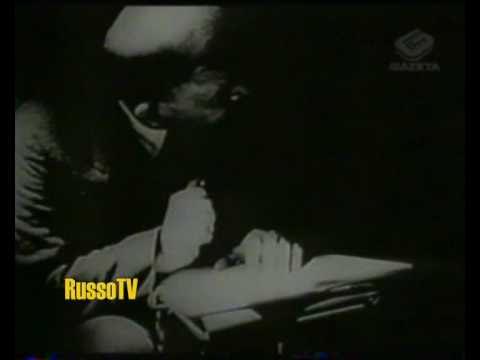CBSE Class 9 History - 2 || Socialism in Europe and the Russia || Full Chapter || By Shiksha House
Summary
TLDRThe video script chronicles the transformative impact of the Russian Revolution, which overthrew the monarchy and introduced socialist ideals. It traces the spread of revolutionary ideas from the French Revolution, the emergence of distinct political factions—liberals, radicals, and conservatives—and the Industrial Revolution's role in societal discontent. The narrative details the Russian Revolution's progression, from Bloody Sunday to the rise of the Bolsheviks and the establishment of the Soviet Union. It also covers the challenges faced by Lenin and Stalin, including the civil war, economic policies, and the collectivization of farms, which had profound effects on the nation's social and economic landscape.
Takeaways
- 🔍 The Russian Revolution marked a significant shift from monarchy to socialism, aiming to eliminate class divisions and create an equal society.
- 🌐 The French Revolution of the 18th century was a precursor to socialism in Europe, advocating for freedom and equality and inspiring change across continents.
- 🏛 The Industrial Revolution led to the growth of cities and industry but also resulted in poor working conditions, low wages, and unemployment, fueling the desire for societal change.
- 🗳️ Political ideologies were divided into liberals, radicals, and conservatives, each with varying views on the extent of societal change needed, from equal voting rights to maintaining the status quo.
- 🏭 The rise of socialism was characterized by the belief in collective ownership of property as a solution to social inequality, with thinkers like Robert Owen, Louis Blanc, Karl Marx, and Friedrich Engels influencing its development.
- 📚 The Russian Revolution of 1905, sparked by 'Bloody Sunday,' was a precursor to the 1917 revolution, reflecting widespread dissatisfaction with Tsarist rule and the desire for a Constituent Assembly.
- 🛑 World War I exacerbated Russia's social and economic issues, leading to widespread discontent and the eventual abdication of Tsar Nicholas II, ending the monarchy.
- 🔄 The October Revolution of 1917 saw the Bolsheviks, led by Lenin, seize power and begin implementing radical socialist policies, including nationalization of banks and land redistribution.
- 🏹 The Russian Civil War was a conflict between the Bolshevik 'Reds' and anti-Bolshevik 'Whites' and 'Greens,' with foreign powers supporting the latter due to concerns over the spread of socialism.
- 🏭 Under Lenin and later Stalin, the Soviet Union pursued aggressive industrialization and collectivization policies, despite facing resistance and severe challenges such as famine.
- 📉 Stalin's forced collectivization of agriculture led to a significant grain shortage and one of the worst famines in Soviet history, causing millions of deaths.
Q & A
What significant event did the Russian Revolution bring about?
-The Russian Revolution replaced the rule by the monarchy and introduced the concept of socialism, promising peace and equality for all.
How did the French Revolution influence the spread of socialist ideas in Europe?
-The French Revolution propagated the ideas of freedom and equality, showing that it was possible to create a society where people controlled economic and social power, and these ideas spread quickly across Europe.
What were the three distinct groups that emerged in response to the revolutionary ideas in society?
-The three groups were liberals, radicals, and conservatives, each with different views on the degree of change needed in society.
What were the main beliefs of liberals during the time of the Russian Revolution?
-Liberals believed in equality of all religions, an elected parliamentary government instead of absolute monarchy, but they only supported voting rights for property owners and did not support suffragette movements.
What was the stance of radicals on voting rights and women's suffrage?
-Radicals agreed with liberals on religious tolerance and removal of absolute monarchy, but they believed in universal voting rights and supported women's suffrage.
How did the Industrial Revolution impact the working conditions and aspirations of workers in Europe?
-The Industrial Revolution led to the formation of new cities and industrial regions, but the working conditions were poor with long hours and low wages, leading workers to yearn for change.
What was the main argument of socialists against private ownership of property?
-Socialists believed that private ownership of property was the root of all social evil, as property owners were not interested in the welfare of the workers despite providing jobs.
Who were some of the prominent socialist thinkers mentioned in the script?
-Some of the eminent socialist thinkers mentioned are Robert Owen, Louis Blum, Karl Marx, and Friedrich Engels.
What event is referred to as 'Bloody Sunday' and what was its significance in the Russian Revolution?
-Bloody Sunday refers to the incident in 1905 when over 100,000 workers in St. Petersburg went on strike demanding better conditions and were attacked by the Tsar's Cossacks, sparking off the Russian Revolution of 1905.
How did the First World War contribute to the conditions that led to the Russian Revolution?
-The First World War led to heavy casualties, labor shortages, and food shortages in Russia, making the Tsar and the royal family very unpopular and creating conditions ripe for revolution.
What were the key points of Lenin's April Theses and how did they influence the Bolsheviks' actions after the October Revolution?
-Lenin's April Theses called for an end to the war, land to be transferred to peasants, and the nationalization of banks. After the October Revolution, the Bolsheviks implemented these points, renaming the party to the Communist Party and taking control of banks and land distribution.
Outlines

This section is available to paid users only. Please upgrade to access this part.
Upgrade NowMindmap

This section is available to paid users only. Please upgrade to access this part.
Upgrade NowKeywords

This section is available to paid users only. Please upgrade to access this part.
Upgrade NowHighlights

This section is available to paid users only. Please upgrade to access this part.
Upgrade NowTranscripts

This section is available to paid users only. Please upgrade to access this part.
Upgrade NowBrowse More Related Video

CBSE Class 9 History - 2 | Socialism in Europe and the Russia | Full Chapter | NCERT Animation

Revolução Russa - Toda Matéria

Conheça a REVOLUÇÃO RUSSA | Resumão

REVOLUSI RUSIA - Lahirnya Kaum Proletariat [Materi Sejarah Peminatan Kelas XI MA/SMA]

Russian Revolution | Bolshevik Revolution | World History | General Studies | UPSC

JORNAL DA GAZETA - Especial União Soviética 1/4
5.0 / 5 (0 votes)